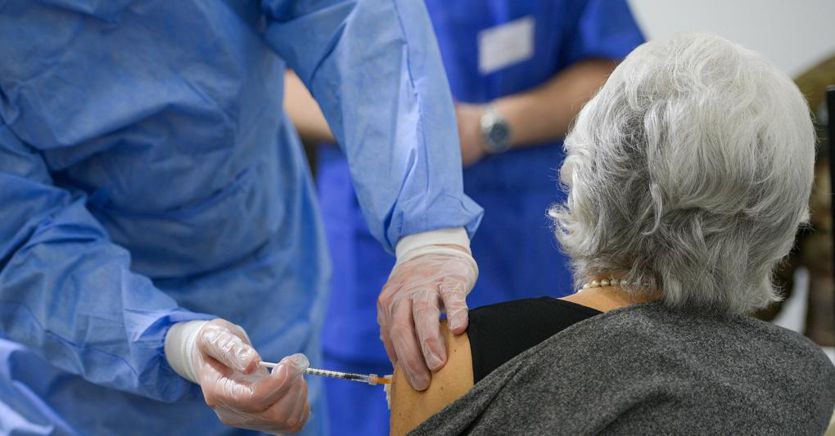Over a sixth of the population has received at least one dose of the Covid vaccine, 4.3 million people have also received the booster. Amidst unforeseen events and territorial differences, the safety of Italians is progressing at an increasing pace. For almost half of the over 80s the entire immunization cycle has been completed (79.2% have already received a dose), a fact that the health authorities have not failed to highlight by presenting the latest report on the progress of ‘epidemic. Despite this, the dead continue to be many (Friday 16 April 429, Saturday 17 April 310), numbers that are difficult to write down despite what one might intuitively expect. This is explained, and for a significant reversal of the trend it is only a matter of time.
The residual load of the intensive
“Probably since it is the second dose that gives maximum vaccine coverage, there are still very few people in the more fragile age groups. The first injection alone clearly covers 50% of the effectiveness, ”he says Massimo Ciccozzi, Head of the Research Unit in Medical Statistics and Molecular Epidemiology at the Campus Bio-Medico University of Rome. «We also take into account that between the first and the second dose three to four weeks pass and that the protective antibodies arrive two weeks after the second dose. We have five to six weeks from the start of vaccination to have maximum protection and it is during this time that people can become infected ». And a considerable percentage in the fragile categories not covered end up in intensive care.
Loading…
“There we still have 3,417 hospitalized patients, a proportion of these can die, especially the elderly and with concomitant presence of multiple disorders.” According to the latest available data updated by the Higher Institute of Health as of March 30, 2021, the average age of patients who died and positive for SARS-CoV-2 is 81 years (43.9% women). The median age of deaths is more than 30 years higher than that of patients who have caught the infection. The most common pre-existing pathologies include hypertension, diabetes, heart disease of various kinds, renal failure and obesity.
Growing numbers for monoclonals
To justify the persistence of the phenomenon, someone among the experts has called into question the lack of appropriateness of the treatments, in particular as regards monoclonal antibodies only recently entered into current use. So far 2,140 patients have been included in the Aifa monitoring registers in Italy for a total of 150 prescribing facilities in 20 Regions. The accumulated delay has its weight but the trend is improving. In the week from 9 to 15 April alone, there were 736 prescriptions, with an average of about 105 per day, equal to an increase of 13.5% compared to the previous week, when there were 647. 51% of the treatments carried out by initiation of dosing, i.e. over 1,000, is with the combination with bamlanivimab and etesevimab, while 647 with bamlanivimab alone and 172 with casirivimab and imdevimab. The Region that has administered the most is Veneto (386) followed by Lazio (293), Tuscany (237), Lombardy (161) and Campania (130).
Review in sight for home care
“In Italy, monoclonals can only be used under certain conditions established by the treating physician who draws up a report and then by the hospital one responsible for administering the product which must be given, however, within a few hours of the onset of symptoms with a diagnosis that provides likelihood of worsening. For example, they can no longer be given to positive people who get worse after a week but who previously did not predict this trend ”, explains the epidemiologist. However, a possible revision of the guidelines is taking place to favor, for example, the administration of monoclonals at home in the new document on which a special working group set up by the Ministry of Health is engaged.
